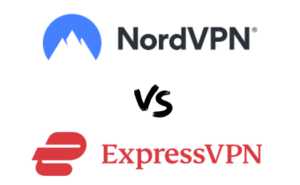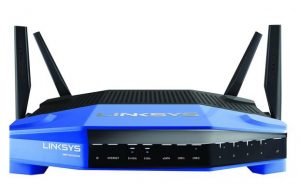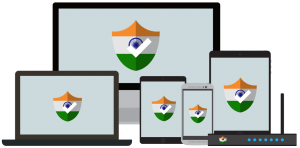
Best VPN for Travel – A guide for Australians
Using a VPN for Travel: Protecting Your Privacy and Accessing Geo-Restricted Content If you’re planning on traveling overseas, you may be wondering if you need
wordpress-seo domain was triggered too early. This is usually an indicator for some code in the plugin or theme running too early. Translations should be loaded at the init action or later. Please see Debugging in WordPress for more information. (This message was added in version 6.7.0.) in /home2/vpnauthority/public_html/wp-includes/functions.php on line 6114We may receive a commission on some products that are listed on our website (at no cost to you).
We test and review VPNs for Australians by Australians. When reviewing and rating VPN services we pay most attention to security protocols, Australian server speeds, support options and server reliability.
Our Score
Excellent privacy and ease of use across all devices make ExpressVPN our number 1 choice.
Special Offer:
Get 3 months FREE
Our Score
NordVPN prides themselves on their new No Logging Policy and absolute commitment to user privacy.
Special Offer:
Upto 75% OFF

Using a VPN for Travel: Protecting Your Privacy and Accessing Geo-Restricted Content If you’re planning on traveling overseas, you may be wondering if you need

NordVPN vs ExpressVPN: Which is the Best VPN for Australians? If you are looking for a VPN service to protect your privacy and security online,
ChatGPT is a large language model chatbot developed by OpenAI. It can be used to generate text, translate languages, write different kinds of creative content,

A good Wi-Fi router provides excellent connectivity features and reliable internet capabilities over a range of devices, according to your preference. But, what is even

Connecting to an Indian VPN is not usually something that we get a lot of requests for….usually that is. Over the last few days, many

2020 is a year that is going to be remembered as the year that the world almost came to a grinding halt. With the outbreak

General Overview VPN Unlimited is based in New York and owned by a company called KeepSolid. It is your run of the mill VPN service

General Overview Turbo VPN is arguably one of the most popular free VPN proxy clients available for iOS and Android devices. Over 50 million installs

Coupon: Get 74% OFF PureVPN’s 2 year plan General Overview PureVPN has been around since as far back and 2007, which why we are not

General Overview Avast SecureLine is often referred to as Avast VPN. As the branding suggests, the SecureLine is a VPN product by the popular security

General Overview PIA, short for Private Internet Access, is a United States based VPN service that offers a range of features, including an ad blocker,

General Overview Most people who are new to VPNs and would like to dip their toes into the technology will be tempted to test out
The market share by VPNs has grown for over a decade with both businesses and consumers now looking to protect their security and privacy. Back in 2016, the VPN market with cloud, SSL, consumer, and business had a combined $15 billion in revenue. Since then various security breaches in the news, identity theft online and even data stolen for profit from hacked computers have if anything added more than 20% to that revenue figure.
While security and privacy are a few common reasons, the other is overcoming censorship. In countries like Russia, China, Iran, and North Korea, VPNs are used to overcome state-sponsored censorship. But even these countries’ effort to block the use of VPNs has been unsuccessful for the most part and has done little to hinder the industry’s growth.
Why are VPNs such a significant threat to suppressive regimes in these countries and how do they work to ensure data security? In this guide, we’ll look at how VPNs have changed the internet in a big way.
VPN is an abbreviation for Virtual Private Network. It is essentially a set of servers that users connect to via the internet. Once you’re connected to the VPN server, it acts as a sort of tunnel through which all your information passes. So, each time you access Google, for instance, Google does not see that you’re accessing it from Australia but rather from New Zealand, or the US if that’s the server you’re connected to. It’s like moving into a new, fully secure office space but of course, you’ve not moved physically.
All data you send and receive on the internet goes through the tunnel created between you and the wide-open internet. The data is encrypted, and the encryption ranges from ones that aren’t as secure but tend to offer faster speeds to military-grade encryption which is highly secure but slows down your internet speed significantly. Once you’re connected to a VPN, nobody and we mean absolutely no one can see what you are doing. Even your ISP and the friendly spy agency next door from you can’t eavesdrop on that traffic.
The short answer to this is yes! It is important to understand that the concept of VPNs is relatively new and so many countries and even jurisdictions within countries have had a tough time keeping up. So, the rules defining their use have continued to elude legal experts.
In most countries, it is perfectly legal to use VPNs. Countries like Canada, Australia, the UK, and the US in addition to most parts of Western Europe. On the other hand, VPN use is illegal in the United Arab Emirates, China, Iran, Belarus, Iran, Turkmenistan, Oman, North Korea, Russia, Iraq, and Turkey.
It has been a subject of much debate by IT gurus for some time now. The problem is that there aren’t two VPN services that you can compare head to head because each one is offering something different. That said when the market for a VPN service consider these two factors:
• The limitation of the VPN technology provided. Some technologies are better than others in various respects.
• Policy and legal limitations which may affect what the technology can do for you. One instance the law of the country where the VPN server is housed and then the laws of where the VPN service is based. So, an Australian based VPN service may be liable to adhere to a court order to disclose perhaps their list of users or even the traffic that passes through their VPN servers.
We examine these factors more closely below.
When you are in the market for a VPN service, the one thing you’ll constantly read a lot about is the protocols. The protocols are necessary because it defines how data is transmitted via the VPN. Standard protocols are SSTP, PPTP, OpenVPN, IKEV2 and L2TP. We examine each protocol briefly below:
SSTP: Secure Socket Tunneling Protocol was built by Microsoft. The protocol establishes a connection using SS/TLS encryption. The strength of TLS and SSL mainly lies in the symmetric-key cryptography that’s built into both parties (client and server) which are involved in the transfer. So, only parties with the right set of keys can unlock the encryption. SSTP is considered a strong security solution.
L2TP/IPsec: It is an abbreviation for Layer 2 Tunneling Protocol. The concept behind this protocol is solid as it uses a set of keys to establish a secure connection on both ends of the data transmission tunnel. Though it isn’t very safe. Using IPsec does help to improve security slightly, but there are reports that the NSA and other spy agencies have the means to crack the encryption. While the stories aren’t confirmed, and there is no real-world proof of concepts of this happening the fact that the protocol’s security is debatable is enough to steer clear of it.
IKEv2: Also called Internet Key Exchange, Version 2 was also built by Microsoft. It was meant to be an upgrade to previous protocols regarding security.
PPTP: It is an abbreviation for Point-To-Point Tunneling Protocol. It is arguably one of the oldest and has been around since the time Microsoft designed it. The biggest pro is that works on older computers and is built into the Windows Operating System. The drawback is that isn’t as secure. So, you shouldn’t use a VPN service provider that uses this protocol.
OpenVPN. The OpenVPN protocol is considered the best as it does not have many of the flaws associated with the ones we mentioned above. It uses SSL/TLS type authentication, but unlike those protocols, it is being improved by hundreds of people from across the world. The connection is secured using keys that are only identified and known by two parties on each end of the data transmission line. It is by far the most versatile and hard to crack protocols.
Understandably most of what we’ve discussed above might not be understood by many people reading this article. However, you don’t need to have an in-depth understanding of each protocol to choose a VPN service provider. What you should know is that most providers offer multiple protocols options like IKEv2, OpenVPN, etc. So, you can select the most secure one directly via the software’s interface.
Another thing worth noting is that not all devices may allow you to use all of these protocols. If you’re a Windows user for instance, then you have a significant advantage since Microsoft built most of the protocols. However, if you’re an Apple user, there will be limitations like for example the L2TP/IPsec happens to be the default iPhone protocol. Android users also have problems similar to this.
Many people get the impression that using a VPN will make them invisible online but that’s not the case. Though it will mask your identity to a great extent. It is like walking around in public with a mask!
When you’re accessing a website for instance without a VPN, your connection is open, and the WiFi router, ISP and any server as part of the network can see the data passing through. Hackers with the right set of tools can also eavesdrop on the data and pick up things like email and chat conversations. So, using a VPN will solve those problems by primarily encrypting the data transmission and will make it appear as though it is the server that’s making a connection.
Well, one way to do this is to choose the right VPN service provider. Make sure to check a couple of things by reading the company’s policies like:
• Do they retain logs? This is important because if they do, then those logs can be sold or surrendered.
• Is the VPN service is established in a jurisdiction where keeping records are a legal requirement of operating there? This is the case with some countries because the government wants to keep a eye on what’s happening.
• Does the company keep any payment records? The records may include identifying information like name, email address, and home address. So, tracking you down becomes easier.
• Does the software use good enough encryption?
Most people already know this that most VPN services aren’t the same. So, you need to choose wisely by addressing the concerns we’ve listed. The easiest way to compare leading VPN services is to use a comparison website perhaps.
Most people reading this article may have done a bit of research and figured out that there are quite a few free VPN services. So, why pay for a service when you can use one for free? If all things were equal, we’d highly recommend using free services, but they are not.
Running a professional, well-maintained service costs a lot of money. You have data transfers, robust servers, employees and infrastructure all of which requires constant maintenance and that is only possible when the service has money. So, free VPNs make compromises. Some may log user activity and sell that information, while others will earn by running ads.
Regardless of if the VPN is showing ads or intends on selling your information to a third-party, most freebie services are low quality. The speeds are slow, the servers are always offline, and you’re stuck with just a handful of servers in a limited number of regions.
On the flip side of things paying for a VPN service isn’t that expensive. Some cost as little as $5AUD a month and they are pretty good too. Plus, you know that at the very least your connection is secure.
The prices vary across VPN service providers depending on the features they offer. However, generally, you’ll be looking at paying somewhere around $5AUD a month. Then there are more expensive ones that can cost you upwards of $12 AUD per month but those are uncommon, and there isn’t much incentive to buy them either. They are arguably only worth exploring if you need a particular type of VPN or encryption that the service provides.
You can get a better price by paying for an annual subscription instead of a monthly one. That said we always recommend subscribing for the first month, to see how it works before committing to the whole year.
Not all VPN services support Hulu and Netflix streaming. But those that do allow you to stream content from across the world. Australians, for instance, would probably use a VPN to watch American Netflix shows or the latest European series. All you need is to choose a server in the country that you want to watch Netflix or Hulu and then log-in with your account. It’s just that simple.
Yes, it can and many VPN services support torrent downloading. While VPNs make it easy to download and share pirated content without being caught, it is still unethical. However, as far as the security aspect of torrenting goes it all boils down to the VPN service’s policies that we’ve discussed above. So, if the VPN server does not maintain logs you can never be convicted for piracy even though we highly advise against it. The only drawback perhaps is that speeds are significantly slower compared to you were not using a VPN.
As a beginner who wants to enhance their security by using a VPN, you don’t necessarily need to know how it works. Most VPN services use interfaces that are so easy that anyone can connect to a server and keep their identity a secret. Plus, most offer excellent customer service to Australians via live chat and email. So, if you have a question or need help the service’s technical support is a click away.